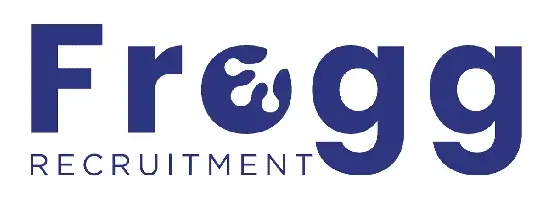Category: Articles
-

High performing and high potential employees
Continue ReadingThe impact of high performing and high potential employees on employers
Determining which of your staff members are high performing and high potential employees can be difficult as an employer. However, precisely what distinguishes high performance from high potential?
Firstly, the recognition among business executives that the success of their organizations depends on the caliber of their talent pipeline. Additionally, talent management is what caused the change toward emphasizing good employer branding. Furthermore, employer branding plays a crucial role in the ability to distinguish between high potential and high performing employees.
What they are: High performing and high potential employees
High potential employees:
A high potential employee, or HIPO, is a person who has the ambition, drive, and aptitude to advance to the top of the organization and pursue success there. Since it shows their potential, HIPO personnel exhibit a thirst and ambition for further responsibility.
They can take initiative, are quick thinkers, and have the soft skills necessary to become part of the future generation of leaders. Ability, social skills, and drive are three characteristics that companies should look for in high potential candidates.
Ability:
In addition, high potential personnel can develop the abilities, skills, and knowledge required for a leadership position. Furthermore, they have an excellent IQ, making it easy for them to learn new things and use them in their profession. Additionally, they exhibit inspiration, vision, and creativity.
Social skills:
Moreover, high potential workers possess the interpersonal abilities necessary to oversee others as well as themselves. Additionally, this involves the capacity to remain composed under duress and overcome obstacles. Moreover, they can build and preserve fruitful, productive connections with their colleagues and behave themselves with respect and honesty.
Drive:
Furthermore, HIPO employees possess the drive, ambition, and work ethic needed to succeed in their positions and advance within the company. Additionally, they might be prepared to endure personal adversity to further their profession.
High performer employees:
Moreover, high-achieving employees provide valuable contributions to the company through their labour, ideas, and perceptions. Furthermore, their outstanding work stimulates creativity, efficiency, and productivity, which improves corporate results.
Additionally, these are workers who frequently advance to more difficult positions inside the company. Lastly, for almost any firm to continue to succeed, high performers are essential. Finding top performers and high potential personnel is crucial for organizations. These are the workers who can significantly improve the organization and the intended results.
This benefits both employee and employer
Companies must make sure that supervisors and managers recognize the importance of great achievers. Additionally, they need to have the information and resources needed to recognize them from regular encounters with their direct reports. This is why strategic thinking in interviews from both employee and employer is of utmost importance.
Therefore, it is crucial to ensure that top performers do not skip forward or take advantage of other chances. Moreover, this recognition of top performers should be a component of ongoing company operations and coaching. It should also be included in the performance management process.
High performers can be recognized by their productivity or results. In addition, they demonstrate a good attitude and make constructive contributions. Moreover, they can even be identified by their capacity to provide others with excellent service and assistance. Once these high performers have been discovered, it is critical that you take the necessary action to provide them with the resources and assistance they require to continue developing.
Identifying high performing employees
Many employees reach their objectives. However, top performers go above and above. After achieving their objectives, they ask, “What’s next?”
In addition, give stretch assignments to personnel who are motivated to achieve their goals. In addition to aiming higher, high achievers are always looking for ways to improve their abilities and pick up new ones. Therefore, use the goals you set for your high-performing staff to help them grow.
Additionally, high performers do not wait for their manager to schedule them for a training session. In fact, even if most employees are receptive to learning and growth, they take initiative and may be the ones willing to spend their own money and effort on professional growth.
Furthermore, managers that have top achievers in their midst should allocate a small additional sum of money to provide them with opportunities for professional growth. It is a wise investment to develop your top performers.
Moreover, it is important to ensure that high performers are genuinely justifying their participation by imparting their knowledge to the team. This will guarantee that resources are being allocated appropriately.Most employees are receptive to criticism. However, what makes a difference is how each person responds to the discussion. Moreover, high achievers consciously look for feedback to increase their self-awareness and proficiency.
In addition, every employee should receive feedback from their managers on a regular basis. Furthermore, it is the morally correct thing to do. Additionally, when speaking with high performers, it is important to remember that maintaining high performance is the aim. Therefore, structure the conversation appropriately.Employees will tell you they do high-quality work if you ask them. Nevertheless, few workers boast that they are just “phoning it in.” Furthermore, high achievers have a quality-focused approach that may seem excessive to others (or bothersome, depending on your perspective).
Consequently, it will be the goal of managers to figure out how to use this never-ending quest of perfection for the organization’s benefit. To increase quality, it can be feasible to assign top performers to task forces or project teams within the organization.Identifying high potential employees
Having a strong work ethic and a goal-oriented mindset is vital, but considering the expansion of the business distinguishes high-potential employees from regular employees. They aim to achieve exceptional work and contribute to overseeing the company’s overall success.
Long-term goals drive the organization. HIPOs possess the ability to make decisions wisely with proper planning. They aim to think about the future and make realistic long-term goals that align with broader growth opportunities.
Only possessing the hunger to grow and eagerness to learn is not enough. A high-potential employee never hesitates to take the lead and does not need to be given instructions. They come forward to learn new things and take the lead.
Resilience is a powerful tool that every leader possesses. Situations can become dodgy at times, and a deserving leader must manage them calmly. Their minds should work sanely without thinking about the stress. They take challenging situations as growth opportunities and not hurdles.
Every business must work at high-speed to thrive in the existing competition. In order to do this successfully, a HIPO is extremely flexible and quickly adapts as changes come and go. They will make necessary changes in the existing pattern where demanded.
Leaders cannot only think about themselves. However, they need to think about everyone in the team and ensure they motivate employees to boost their productivity. Additionally, a good leader always ensures a positive relationship with the team members to keep them engaged.
Conclusion
Lastly, regularly evaluating and assessing the performance and potential of employees can aid in making informed decisions regarding promotions and career advancement opportunities. It is very important to overcome unconscious bias at this point. Know your high-performing and high-potential employees. For insightful content like this, head over to our blog page and follow us on our social media like Facebook, Instagram, Twitter, and LinkedIn
-

Strategic thinking during interview questions
Continue ReadingWhy is strategic thinking so important?
The ability to think strategically has become essential for decision-makers and executives navigating the fast-paced commercial world of today.
Additionally, it is crucial to include strategic thinking during interview questions in the hiring process to find applicants with those kinds of abilities. This is especially important for recruiters/hiring managers in charge of recruitment. Interview questions centered on strategic thinking facilitate the identification of people capable of scenario analysis, as well as opportunity identification.
Furthermore, these questions help assess successful strategy development to propel corporate success. Notably, strategic thinking forms a big part of even the 10 most common interview questions. Therefore, interview questions for strategic thinking are designed to assess several critical facets of a candidate’s ability.
Therefore, they assess the following:
Analytical skills:
These questions assess a candidate’s ability to analyse complex problems and break them down into manageable components. They reveal the candidate’s capacity to gather relevant information, consider multiple perspectives, and draw logical conclusions.
Flexibility and Adaptability:
Questions focusing on adapting strategies to changing circumstances help gauge a candidate’s ability to respond effectively when faced with unexpected challenges. Furthermore, they reveal whether the candidate possesses the flexibility to adjust their plans and pivot their approach as needed.
Resource Allocation and Prioritization:
These questions aim to assess a candidate’s ability to make informed decisions regarding resource allocation. Candidates are evaluated on their capacity to identify priorities, assess the impact of different tasks or projects, and allocate resources strategically to maximize outcomes.
Opportunity Recognition and Threat Mitigation:
Questions related to identifying market opportunities or addressing competitive threats, on the other hand, evaluate a candidate’s ability to think strategically in response to external factors. Specifically, strategic thinking during interview questions, therefore, assesses their capacity to spot trends, anticipate risks, and capitalize on opportunities. This, in turn, highlights their proactive approach to strategic planning.
Alignment of objectives and execution:
These questions assess a candidate’s ability to bridge the gap between strategic objectives and the day-to-day activities of their team. Employers look for candidates who can effectively communicate goals, motivate their team, and ensure that their strategic plans are translated into actionable steps.
Influencer and stakeholder management:
Questions about persuading stakeholders to evaluate a candidate’s capacity for relationship-building, persuasion, and winning over others to innovative ideas or strategic orientations.
However, this shines through when you actively ask questions during the interview as well. Additionally, this shows that they can successfully negotiate intricate organizational dynamics and win over important players.
Strategic thinking during interview questions explained:
Firstly, this question assesses a candidate’s ability to understand complex situations. In addition, it tests their capability to break them down into manageable parts. Furthermore, it evaluates their skill in developing a strategic plan. When evaluating candidates, look for those who demonstrate a structured approach to problem-solving. Additionally, look for candidates who gather relevant information and consider various alternatives. Finally, seek candidates who can present a well-thought-out strategy
Strategic thinking involves being flexible and responsive when faced with unpredictable changes. In addition, this question aims to evaluate a candidate’s ability to adjust their strategy in response to evolving circumstances. Moreover, look for candidates who demonstrate agility, the ability to think on their feet, and a willingness to pivot their approach when necessary.
This question assesses a candidate’s ability to make sound decisions regarding resource allocation. Look for candidates who can assess the relative importance and impact of different tasks or projects, prioritize effectively, and allocate resources in a way that maximizes value and minimizes waste.
Strategic thinking involves identifying and capitalizing on opportunities while mitigating potential threats. This question helps evaluate a candidate’s ability to identify market trends, competitor activities, or other factors that could impact the organization. Look for candidates who demonstrate a proactive approach to seizing opportunities or addressing threats through strategic planning and execution.
Creating practical plans from high-level objectives and coordinating them with day-to-day activities are necessary for effective strategic thinking. In addition, emotional intelligence plays a key role here. Furthermore, this question assesses a candidate’s ability to bridge the gap between strategic goals and tactical execution. Moreover, look for candidates who emphasize clear communication, goal setting, and the ability to motivate and align their team toward strategic objectives.
Additionally, navigating complicated connections and persuading stakeholders to support and embrace new initiatives require strategic thinking. Moreover, this question assesses a candidate’s capacity to forge agreements, persuade others, and win over important stakeholders. In particular, look for candidates who can demonstrate effective negotiation skills and a track record of successfully driving change through strategic influence.
Furthermore, it is important to seek candidates who understand the importance of balancing immediate results with long-term strategic goals. Additionally, candidates should be able to analyze the potential consequences of their decisions and prioritize actions that align with the organization’s overarching strategy.
Additionally, those with a strategic mindset are adept at seeing areas for development and streamlining procedures. Furthermore, this question evaluates a candidate’s ability to spot inefficiencies and develop strategic solutions to enhance productivity or streamline operations. In addition, look for candidates who display their analytical skills, innovative thinking, and the ability to drive positive change.
This question assesses a candidate’s ability to think critically about market dynamics and develop strategies to outperform competitors. Moreover, look for candidates who demonstrate market awareness. In addition, they should have the ability to identify unique value. propositions, and the capability to create differentiation strategies that can help the organization gain a competitive edge.
Strategic thinking is the ability to make well-informed decisions under uncertain or incomplete conditions. Additionally, this question evaluates a candidate’s ability to analyse risks, weigh potential outcomes, and make calculated decisions in ambiguous situations. Furthermore, look for candidates who display their ability to gather relevant data, consult with relevant stakeholders, and demonstrate sound judgment.
The significance of matching departmental goals and team goals with company objectives is recognized by strategic thinkers. Moreover, to improve performance and adjust to changes in the market, this question evaluates a candidate’s capacity to evaluate the existing situation. In addition, it assesses their ability to spot gaps and strategically reorganize teams or departments.
It is important to look for candidates who can articulate their change management skills. Furthermore, their communication abilities and the ability to drive organizational alignment should also be considered.
Lastly, strategic thinkers are excellent at identifying opportunities even in adverse situations. Therefore, this question evaluates a candidate’s ability to think creatively and develop strategies to navigate crises successfully. Furthermore, look for candidates who demonstrate resilience, problem-solving skills, and the capacity to turn adversity into an advantage through strategic decision-making.
Conclusion
In conclusion, from the view of an employer, it is important to incorporate strategic thinking during interview questions. As a potential employee, it is important to have the ability to strategically think whether it be in the interview and then in the workplace. It is an ability you need to develop for your abilities to be tested.
For more insightful content like this, head over to our blog page and follow us on Facebook, Instagram, Twitter, and LinkedIn
-

Positive behaviours that will advance your career
Continue ReadingWhat are positive behaviors in the workplace?
You may have begun this stage of your career with a certain objective in mind. Is it to land a specific job, work for a particular business, or gain expertise in a different sector? Whatever the objective, you will discover at some point in the process that you’re prepared to advance your career.
What is a high-performing employee?
A high performer is someone who goes above and beyond to achieve their goals and complete their tasks or assignments at work. This type of person takes initiative and focuses on improving their workplace habits and behaviors. They’re considerate team players, their superiors and colleagues count on them and often take on more work.
They lead by example and set precedence for other staff members wanting to also be high performers. They are a professional recruitment agency’s dream candidate as they are easy to place and recruit easily. Employment opportunities shine for them as they are valuable assets to new employers. Recruitment is easier this way as these candidates have great references and skills. In our article high performing and high-potential employees insightful information will be explained around this theory.
High-performing employees not only achieve their goals and improve the companies they work for, but they also gain recognition for being accountable, skilled, and able to get things done. Therefore, if you want to improve your professional abilities and be perceived as a strong asset, it is essential to ask yourself: Are you interested in becoming a top-performing employee?
In this article, we will discuss positive behaviors that will advance your career now that you are ready for career advancement.
To advance in your career, productivity is vital. In order to do so, prioritize and complete urgent tasks first. First and foremost, make a list of the most crucial tasks that you want and need to get done for the day. Once you have your list, sort your tasks according to importance. Additionally, plan for how you will work efficiently, not just how much you will enjoy the activity.
Your capacity to thrive in your work is impacted by the fact that low-priority tasks are frequently not your responsibility. Instead of giving in to the temptation to complete unimportant tasks that make it harder for you to meet your goals, consider whether they are an effective use of your time. Productivity along with the factors that we will further discuss in this article is a driving force to job satisfaction.
Weekly reviews
In addition, include a weekly individual review. Furthermore, make sure everyone is on the same page and discuss any urgent concerns. Moreover, many organizations hold weekly department meetings. Additionally, individual meetings can also be held for the same purpose. Lastly, include a personal evaluation every week in your routine to make sure you are completing your weekly assignments on time.
Evaluate the quality of your work, make a note of any tasks you have overlooked, and make sure you finish them by the end of the week. This is one of the first positive behaviours that will advance your career.
Additionally, motivation is how we accomplish goals we find meaningful. Furthermore, as the second of many positive behaviours that will advance your career, it is important to note that these behaviours seem reasonable and simple. Moreover, we are also very proficient at being demotivated, even when we are aware that we have tasks to accomplish and deadlines to meet.
You should let yourself take short rests or breaks for all the reasons listed above. Your motivation to do high-quality work and your effectiveness in doing so can be impacted by something as basic as making oneself tea as a reward for finishing a task.
It allows you to take quick breaks to extend your legs, improve blood flow, and get ready to tackle a new assignment when you go back to your desk.
Hindrance to progress
While you should not take on assignments that will hinder your progress, you should never plan to stay in the same position for an extended period. Whatever ideas come to mind, whether they have to do with your department or organization, your future work plans, or your current task, write them down.
It is impossible to predict when you might be requested to share fresh perspectives during a departmental meeting or presented with fresh chances for career growth. A varied workweek might serve as a source of motivation.
Eliminate all distractions.
Your phone, personal email, and other notifications that may show up will be distractions that take your attention away from achieving your daily objectives. During working hours, remember to put your phone away and turn it to quiet. If you can avoid being distracted at work, you will be rewarded for your attention to detail by being able to check your phone at lunch and after work.
The third of the positive behaviours that will advance your career in development. Never give up on your personal growth and development. There are a few ways you can be open to learning and keep learning new things even if you detest studying.
This will be as easy as keeping an appropriate book with you for when you have some free time, taking an online course to review the material, or even going to a seminar day. You need to always aspire higher and never settle for how far you have come.
Bear in mind, that when you are making this conscious effort to incorporate measures that will aid in the advancement of your career, your employer is contributing to your career advancement in a major way. This is done by putting measures in place that will increase your overall performance.
Always be updated on the latest business news
Remain informed about your business and the sector. Watch rival businesses, news, and smart people in your field on Twitter, Instagram, and Facebook. Visit recruitment agencies, employment agencies, and personnel agencies’ websites to keep up to date with the latest industry news.
Spend more time each day keeping yourself informed on market trends and how they impact both the success of your business and your career. Setting up a Google alert to get notified anytime there are trends on a particular topic might also be useful.
The fourth of the positive behaviours that will advance your career is to provide solutions instead of complaints. Be the one to discover solutions rather than only voicing complaints about issues. Accept responsibility for the problems, consider them impartially, and offer solutions.
In addition to bringing about positive change, proactive issue solvers motivate and inspire others with their ingenuity and fortitude.
The fifth of the positive behaviours that will advance your career is building workplace relationships. Your professional success and advancement will be significantly impacted by the connections you make at work. You have a better chance of collaborating successfully if you take the time to get to know your coworkers.
Build stronger bonds with them, and discover how they prefer to work. It might not always come easily, you will find it helpful to make it a habit to build relationships at work. This may be enquiring about the hobbies and personal lives of your coworkers or making a commitment to attend social events at work.
Communication is key, even with your coworkers
Coworkers will feel more confident to voice their thoughts, discuss, and accept innovative ideas. For example, if they are more at ease with one another. It takes this kind of cooperation to embrace change, develop, and invent. Group morale and productivity surge when members witness the successes of working together.
You can concentrate on opportunities instead of wasting time and energy on unfavorable connections, such as gaining new business or concentrating on your own growth.
Last but certainly not least of the positive behaviours that will advance your career is constructive criticism. Something that recruiters will prepare you for. Constructive criticism is simple to use, straightforward, honest, and clear. It offers precise illustrations and doable recommendations for constructive transformation. This kind of feedback emphasizes how the recipient will change their conduct for the better to reduce issues down the road.
Constructive criticism is meant to be aid your progression
You now have a brief window of time to rapidly remind yourself of the advantages of constructive criticism. This includes enhancing your abilities, output, and interpersonal interactions. As well as helping you live up to the standards set by your management and others.
Additionally, you ought to control your reactions toward the person giving the critique. Receiving criticism from a peer, coworker, or someone you do not fully respect can be difficult. Keep in mind that even imperfect sources can provide accurate and helpful comments.
In conclusion, having positive behaviours in the workplace is important as you plan to advance your career. This is every reason it is important to develop these behaviors’ as it will be beneficial to your future.
For more insightful content visit our blog page and follow us on our socials Facebook, Instagram, Twitter and LinkedIn.
